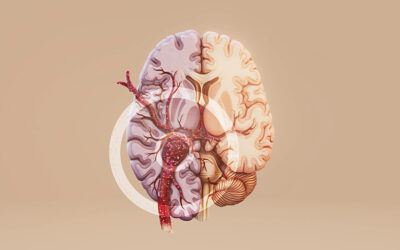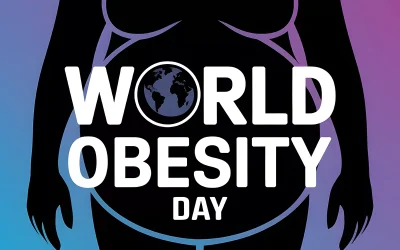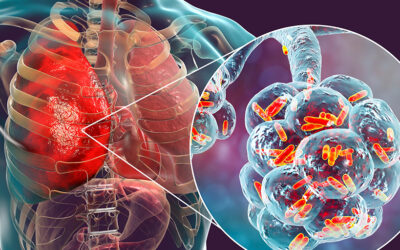Food Poisoning vs Stomach Infection: Symptoms, Causes & When to Seek Help

Digestive issues are among the most common health complaints, with the leading causes being food poisoning and stomach infections. While these conditions may present with similar symptoms such as diarrhoea, abdominal cramps, or vomiting, they differ significantly in how they begin, spread, and the treatment they require. To help clear the air, in this article, we’ll go through the key differences between food poisoning and stomach infection, their symptoms, causes, treatment options, and when to seek medical attention. Let’s begin.
Table of Contents
ToggleFood Poisoning vs Stomach Infection: Understanding the Difference
Food poisoning and stomach infections both affect the digestive tract, but they arise from different sources and behave differently in the body.
Food Poisoning
Food poisoning is usually caused by consuming food or beverages contaminated with harmful bacteria, viruses, parasites, or their toxins. It often strikes quickly, sometimes within hours of eating, and is not contagious. The illness is directly linked to what was consumed, and symptoms can range from mild discomfort to severe dehydration.
Stomach Infection
Stomach infections, on the other hand, are commonly caused by viruses (such as norovirus or rotavirus), bacteria, or parasites that infect the gastrointestinal system. These infections can spread through contaminated hands, utensils, surfaces, or water. The symptoms tend to develop more gradually and may last longer. Unlike food poisoning, stomach infections can be contagious and spread within households, especially where hygiene is compromised.
Key Symptoms of Food Poisoning and Stomach Infection
Although both conditions affect the digestive system, the pattern, intensity, and timing of symptoms can help distinguish one from the other. Here’s how the symptoms typically differ:
Symptoms of Food Poisoning
Food poisoning symptoms usually appear suddenly, often within a few hours of consuming contaminated food or drink. Common signs include:
- Stomach or intestinal cramping
- Loose motions or watery diarrhoea
- Abdominal pain and bloating
- Nausea and vomiting
- Fatigue and general weakness
- Signs of dehydration such as dry mouth, dizziness, or reduced urination
- Mild fever in some cases
Symptoms of Stomach Infection
Stomach infection symptoms tend to develop more gradually and may last longer than food poisoning. These include:
- Gradual onset of stomach pain or discomfort
- Recurrent or persistent diarrhoea
- Low to high-grade fever
- Bloating, gas, or flatulence
- Loss of appetite
- Body aches and headache
- Mild dehydration if fluid intake is not maintained
Causes of Food Poisoning and Stomach Infection
Understanding the sources of contamination or infection is essential for both prevention and treatment. While both conditions can lead to similar symptoms, their causes are quite distinct.
Causes of Food Poisoning
Food poisoning results from consuming food or drinks contaminated with harmful microorganisms or their toxins. This can happen due to poor hygiene, improper storage, or undercooking. Common triggers include:
- Raw sprouts
- Soft or unpasteurised cheeses such as Brie and feta
- Unwashed vegetables and fruits
- Raw or undercooked fish, shellfish, or meat
- Contaminated or untreated water
- Raw or lightly cooked eggs
- Unpasteurised milk, juice, or cider
- Undercooked rice that has been left at room temperature too long
These items can harbour bacteria such as Salmonella, E. coli, or Listeria, all of which can lead to illness if ingested.
Causes of Stomach Infection
Stomach infections are typically caused by viruses, though bacteria and parasites may also be responsible. These infections spread through contaminated hands, surfaces, food, or water. Common viral causes include:
- Norovirus: spreads quickly in households and crowded places
- Rotavirus: a common cause of diarrhoea in children
- Astrovirus: often affects children and older adults
- Adenovirus: may cause stomach upset along with respiratory symptoms
Types of Food Poisoning and Stomach Infections
Different types of bacteria, viruses, and parasites are responsible for food poisoning and stomach infections. Identifying the type can help guide appropriate treatment and preventive steps.
Common Types of Food Poisoning
Food poisoning can be caused by a wide range of pathogens, each with its own source and effects. Some of the most frequently reported types include:
- Salmonella: Found in raw eggs, poultry, and unpasteurised milk
- E. coli: Linked to undercooked beef and contaminated vegetables
- Listeria: Associated with unpasteurised cheese and processed meats
- Norovirus: Often spread through contaminated food or water
- Campylobacter: Common in undercooked poultry and unclean water
- Clostridium perfringens: Found in food that has been kept warm for too long
- Botulism: A rare but serious form of food poisoning caused by improperly canned food
- Staphylococcus aureus: Can grow in improperly stored food, producing toxin
Common Types of Stomach Infections
Stomach infections are usually viral but may also result from bacteria or parasites. These include:
- Viral Gastroenteritis: Often caused by norovirus or rotavirus, spread through close contact or contaminated surfaces
- Bacterial Gastroenteritis: Caused by pathogens such as Shigella, Campylobacter, or Salmonella
- Parasitic Infections: Caused by organisms such as Giardia lamblia, more common in areas with poor sanitation
Effective Treatment Options
The treatment for food poisoning and stomach infections varies depending on the severity of symptoms and the underlying cause. While many mild cases improve with rest and hydration, some may require medical attention.
Treatment for Food Poisoning
- Stay hydrated using clean water, oral rehydration solutions (ORS), or electrolyte drinks to replace lost fluids.
- Take rest and avoid solid food during the initial phase of illness.
- Eat light meals such as khichdi, curd rice, or toast once the appetite returns.
- Avoid dairy, spicy, or oily foods that can irritate the stomach.
- Do not self-medicate with anti-diarrheals unless prescribed.
- Use antibiotics only when prescribed, usually in bacterial food poisoning cases.
Read More: Understanding the Importance of Oral Rehydration Therapy
Treatment for Stomach Infection
- Drink plenty of fluids to prevent dehydration from diarrhoea or vomiting.
- Consume bland, easy-to-digest foods such as plain rice, boiled potatoes, bananas, or toast.
- Probiotics may help restore the gut’s natural balance.
- Take antiviral or antibiotic medication only if advised by a doctor, depending on the cause.
- Seek medical help if symptoms worsen or last more than 2–3 days.
Both conditions require attention to hygiene and hydration. For high-risk individuals, such as young children, the elderly, or those with chronic health issues, timely medical support is essential.
Home Remedies for Mild Symptoms
In mild cases of food poisoning or stomach infection, home remedies can offer relief and support recovery. These remedies are most effective when symptoms are not severe and there are no signs of complications like dehydration or high fever.
- Ginger Tea: Known for its anti-nausea and anti-inflammatory properties, ginger tea can soothe the stomach and reduce cramping.
- Cumin Seeds (Jeera Water): Boiled cumin water may help reduce bloating and improve digestion.
- Bananas: Gentle on the stomach and rich in potassium, bananas can help replenish electrolytes lost through diarrhoea.
- Yoghurt with Fenugreek Seeds: This combination is known in many Indian households to aid digestion and rebalance gut bacteria.
- Apple Cider Vinegar: A small amount diluted in water before meals may help reduce stomach acidity and support digestion.
- Stay Hydrated: Sip on ORS, lemon water with a pinch of salt and sugar, or plain water throughout the day to prevent dehydration.
- Eat Bland Foods: Stick to easily digestible meals such as khichdi, plain curd rice, or boiled vegetables until symptoms subside.
Note: These remedies are not substitutes for medical care and should be avoided in cases of severe illness or persistent symptoms. If discomfort continues beyond 48 hours or worsens, it’s important to consult a doctor.
Final Word
Knowing the difference between food poisoning and a stomach infection is essential for managing symptoms effectively and avoiding complications. While both can cause discomfort and digestive distress, they differ in cause, spread, and required treatment. If you or someone you know is experiencing persistent vomiting, dehydration, or a fever that lasts for more than a couple of days, it is advisable to consult a gastroenterologist. Early diagnosis not only speeds up recovery but also helps prevent the condition from worsening or spreading.
To book a consultation with a specialist at Graphic Era Hospital, call 18008897351.
Frequently Asked Questions
What is the fastest way to recover from food poisoning at home?
Staying hydrated is key. Sip ORS or lemon water, rest well, and follow a light, bland diet until symptoms improve. Avoid spicy, oily, or heavy meals.
Can stomach infections spread from one person to another?
Yes, especially viral stomach infections like norovirus and rotavirus. They can spread through contaminated hands, surfaces, or shared utensils.
Is it safe to have dairy products after food poisoning?
It’s best to avoid milk and dairy for a few days as they can be hard to digest and may worsen diarrhoea or cramps in some individuals.
How long do symptoms of viral gastroenteritis last?
Most viral stomach infections last between 2 to 5 days. However, symptoms may persist longer in children or those with weakened immunity.
How can food poisoning be prevented while travelling or eating out in India?
Opt for freshly cooked meals, avoid cut fruits or raw salads from street vendors, drink bottled or boiled water, and maintain hand hygiene.
What foods help in recovering from a stomach infection?
Plain rice, curd, bananas, toast, and boiled potatoes are gentle on the stomach and help restore energy and gut balance.
Who should I consult for a stomach-related illness near me?
A gastroenterologist is the right specialist to consult for persistent stomach symptoms. If in Dehradun, visit Graphic Era Hospital for expert care.
By Specialities
- Bariatric Surgery
- Cancer Care
- Cardiology
- Dental
- Dermatology
- Diabetes & Endocrinology
- Endocrinology and Diabetes
- ENT (Ear Nose Throat)
- Eye Care
- Gastroenterology
- Haematology
- Health Awareness
- Health Care
- Health Tips
- Hematology
- Hepatology
- Internal Medicine
- Mental Health and Behavioural Sciences
- Metabolic
- Neonatology
- Nephrology
- Neurology
- Nutrition & Dietetics
- Obstetrics & Gynaecology
- Oncology
- Ophthalmology
- Orthopaedics
- Paediatric
- Physiotherapy & Rehabilitation
- Plastic and Reconstructive Surgery
- Psychology
- Pulmonology
- Rheumatology
- Spine
- Urology
Recent Posts
Need expert medical advice?
Share your details and our healthcare specialists will reach out to assist you.
By proceeding, you acknowledge and agree to our Privacy Policy, Terms of Use, and Disclaimer.




















